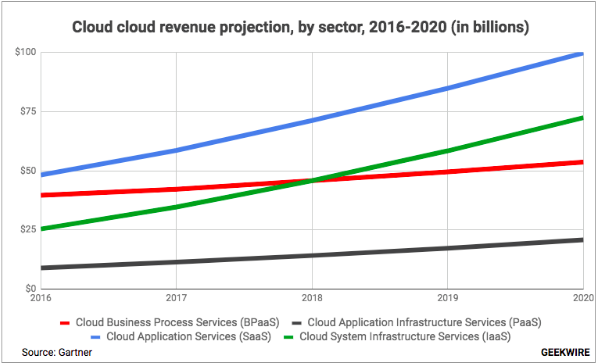AI is leading the charge for SaaS growth
In April of this year, UK startup Juro landed $2m in seed funding from Berlin-based VC firm Point Nine Capital, among others. Juro, which provides software-as-a-service (SaaS) sales contract tools to its users, typically caters to customers that have to manage a relatively high volume of contacts, such as marketplaces – making it a prime example of an on-demand software provider who is counting on artificial intelligence to increase the value proposition of their software.

Juno’s CEO and co-founder Richard Mabey told TechCrunch that AI was vital for future growth:
“We actually could have strung it out to Series A… But we had multiple offers come in and there is so much of an explosion in demand for the [machine learning] that it made sense to do a round now rather than wait for the A. The whole legal industry is undergoing radical change and we want to be leading it.”
Juro is far from the only SaaS provider who see AI as being the future of their product. Salesforce, for instance, which has been described as the “quintessential” SaaS provider for its cloud-based customer relationship management (CRM) tools, acquired AI startup MetaMind just over two years ago, to “further automate and personalize customer support, marketing automation, and many other business processes”.
The primary reason behind the push into AI among SaaS companies is that, as on-demand software typically centralises and stores data on behalf of their consumers, the companies have access to vast amounts of data, which are the perfect test grounds for AI products like Salesforce’s Einstein. Using that data, AI can pull out patterns and anomalies that corporations can use to better understand and monetise their own customers.

For instance, Mabey explains that “the thing we and our investors are really excited about is not just helping businesses with contract workflow but helping them understand their contract data, auto-tag contracts, see patterns in negotiations and red flag unusual contract terms.”
That’s especially useful as increasing proportions of the population are exposed to SaaS tools all the time. If you’ve ever used DocuSign to close a contract on a property lease, communicated over Slack, saved something via Dropbox or used any of Google’s apps like Drive, then you’ve been an SaaS user, even if you haven’t necessarily paid for those services directly.
That means that each of those providers has access to huge amounts of user data, which it can use to develop new tools for its paid consumers. For the most part those tools are providing ease of analysis at scale, vital as competition for those services increases: 73 percent of organizations expect to shift nearly all of their apps to cloud-based services by 2020, according to a report by SaaS ops management company BetterCloud.
Speaking to IDG’s ComputerWorld UK, Marco Casalaina, VP of product for Einstein gives a great example of such an improvement that has had a tangible effect on the bottom line of one of its users:
“Room and Board is a long-time Marketing Cloud customer. It has recently adopted Einstein for more intelligent email segmentation. Say the company wants to target emails at men in California over the age of 35; now within Marketing Cloud customers can add parameters for the likelihood that someone would open the email. Naturally this has helped boost open rates, by as much as 15 percent, according to Casalaina.”
AI, then, is underpinning the growth of and investment in many SaaS providers. As the industry as a whole begins to encounter some headwinds – GDPR and, ironically, AI used for the purposes of replacing humans – it will more than likely be those SaaS providers who have access to tools like Einstein that will weather those headwinds most effectively.
Martin Tripp Associates is a London-based executive search consultancy. While we are best-known for our work in the TMT (technology, media, and telecoms) space, we have also worked with some of the world’s biggest brands on challenging senior positions. Feel free to contact us to discuss any of the issues raised in this blog.
Image courtesy of Matthew Bilton, via Flickr